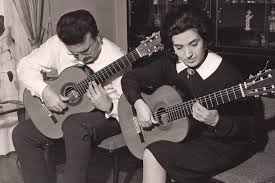I vaguely remember a quote from author Peter Rimmer that was something along the lines of “you don’t have to be born in Africa to be an African” and he may be the living proof of that. Born in London he was, technically, an Englishman. He
The years went by and Peter found himself in Johannesburg founding an insurance brokering company. Over 2% of the companies listed on the Johannesburg Stock Exchange were clients of Rimmer Associates. He opened companies in the United States of America, Australia and Hong Kong and traveled extensively between the branches.
His passion had always been writing books, which he started at a very early age, though running a business was a driving force too and a common thread throughout his books. By the 1990’s, he had written several novels about Africa and England, and his breakthrough came with Cry of the Fish Eagle published by HarperCollins, Zimbabwe. It was a bestseller, which was followed up with the release of Vultures in the Wind. However, during this time, Zimbabwe was going through its struggles and the books did not get their just international recognition.
Having lived a reclusive life on his beloved smallholding in Knysna, South Africa, for over 25 years, Peter passed away in July 2018. He has left an enormous legacy of unpublished work for his family to release over the coming years, and not only them but also his readers from around the world will sorely miss him. Peter Rimmer was 81 years old.
That thumbnail biography pretty well encapsulates the story lines of the novels he published as THE AFRICAN TRIOLOGY.
The publicity info about the three novel is as follows:
Book 1: Cry of the Fish Eagle
Rupert’s family is happy and at peace. But a vulnerable future is ahead. Chaos is coming. The Rhodesian War is looming… Rupert escapes to Rhodesia from the bloody conflict that is terrorizing Europe. His mission is not just duty-driven but a promise to look for an orphaned, young girl. It’s a futile search and with time running out he has no choice but to re-join the theater of war. When peace returns Rupert travels back to Rhodesia to begin anew, to find the orphaned girl and to start a new life. But nothing can prepare him for what is next as we helplessly watch Rupert wade against a chaotic tide of nationalism.
Book 2: Vultures in the Wind
Luke was close to death. He had been beaten mercilessly and was unrecognizable. They wanted the names of his ANC accomplices. Matthew Gray and Luke Mbeki were born on the same day, spending a brief childhood on an African beach, blissfully ignorant of the outside world. But their youth is severed. Released into the real world, the two now face their future in a country deep in the throes of violent change. Can the rules and discipline of discrimination pull the men apart? Is there any mercy? And what happens when these two eventually cross paths?
Book 3: Just the Memory of Love
Will he ever find his love again or will she always just be a memory? The war is finally over and for the young and naïve Will Langton, his future is full of exciting adventure and happy dreams. Captivated by a brief, but innocent love affair on the rocks of Dancing Ledge, the romance is shattered in one single moment and she is lost to him. For Will, it’s an unbearable pain that he cannot hope to escape from and the only means to assuage his sorrow is to run away… to Africa.
These are stories about post World War II South Africa and Rhodesia and the rise of Black Nationalism in that part of the world. All three books are a great read about the lives of interesting individuals set in a very chaotic period of history. The author’s political points of view, and there are a number, are very evident but do not mar the story. It is evident that he thought that the colonial period was not all together bad. On the other hand he thought that Black Nationalism has been a disaster. He obviously dislikes Apartheid and the inherent evils of its institutionalized racism and yet he paints the anti-apartheid movement in less than a favorable light. He has no love for the socialism of post war Britain and holds the benefits of capitalism in fairly high regard. In doing so he is not blind to some glaring faults in the system.
I had a Rhodesian friend, Paul Dickenson, who died a few years back. On reading this trilogy I wish Paul was still around so I pick his brains about growing up in Rhodesia. At that time Rhodesia was the bread basket of Southern Africa and from a colonial point of view a paradise. Now, of course, it is a basket case. “One Man, One Vote” rules the day but one must ask at what cost.
If a reader is a fan of Wilbur Smith’s African stories then his trilogy, available on Kindle for under $10 will have great appeal.
I am also looking forward to reading The Brigandshaw Chronicles (Books 1-3) by the same author. These novels are set in South Africa during the Boer War period. They are also available on Kindle for under $10.
@@@@@@@@@@@@@@@@

 At the time Classical guitar performance was a masculine domain. Andre Segovia had established the Classical Guitar as a legitimate solo instrument and by the time Liona arrived on the scene he had passed on and the genre was dominated by the likes of Julian Bream, John Williams and Alirio Diaz. It was still very much a man’s world. There were female performers who came before Liona. Most notably there was the brilliant French guitarist Ida Presti who, with her musical companion and life partner Alexander Lagoya , has left us with a
At the time Classical guitar performance was a masculine domain. Andre Segovia had established the Classical Guitar as a legitimate solo instrument and by the time Liona arrived on the scene he had passed on and the genre was dominated by the likes of Julian Bream, John Williams and Alirio Diaz. It was still very much a man’s world. There were female performers who came before Liona. Most notably there was the brilliant French guitarist Ida Presti who, with her musical companion and life partner Alexander Lagoya , has left us with a  legacy of some of the best classical duo performances ever recorded. In no way did Ida “play like a girl”. For Liona it was an era in which female musicians were still expected to be overtly feminine, wear frothy dresses, high heel shoes and appear on stage with a somewhat submissive demure. Liona was a perfect fit for those expectations and although she had impressive technique her repertoire, in my opinion, was not adventurious. But, to be fair the repertoire of most classical guitarists of the day lacked a sense of adventure. New composers and compositions were just emerging and these would change the accepted notion of the standard repertoire.
legacy of some of the best classical duo performances ever recorded. In no way did Ida “play like a girl”. For Liona it was an era in which female musicians were still expected to be overtly feminine, wear frothy dresses, high heel shoes and appear on stage with a somewhat submissive demure. Liona was a perfect fit for those expectations and although she had impressive technique her repertoire, in my opinion, was not adventurious. But, to be fair the repertoire of most classical guitarists of the day lacked a sense of adventure. New composers and compositions were just emerging and these would change the accepted notion of the standard repertoire. like, and she played with a drive and a passion that left most male Classical Guitarists in the dust. One of her first recorded efforts was a collection of the Bach Lute Suites that set the Classical Guitar world on its ear. The Classical Guitar world has never been the same since and the number of high caliber female performers that have followed in he footsteps is astounding. So much so that it is unfair to single out a performer for comment when there are so many young Classical Guitarists, male and female, out there. Having said that this performance of John Dowling’s Fantasia Number 7 by the very young Australian guitarist Alberta Khoury is of note.This young lady has studied with Sharon Isbin and it may account for her aggressive technical and musical approach. She has been criticized for playing at too fast a tempo but her dynamic and tonal control is above reproach. I believe at the time of this recording she was 16 years old.
like, and she played with a drive and a passion that left most male Classical Guitarists in the dust. One of her first recorded efforts was a collection of the Bach Lute Suites that set the Classical Guitar world on its ear. The Classical Guitar world has never been the same since and the number of high caliber female performers that have followed in he footsteps is astounding. So much so that it is unfair to single out a performer for comment when there are so many young Classical Guitarists, male and female, out there. Having said that this performance of John Dowling’s Fantasia Number 7 by the very young Australian guitarist Alberta Khoury is of note.This young lady has studied with Sharon Isbin and it may account for her aggressive technical and musical approach. She has been criticized for playing at too fast a tempo but her dynamic and tonal control is above reproach. I believe at the time of this recording she was 16 years old.